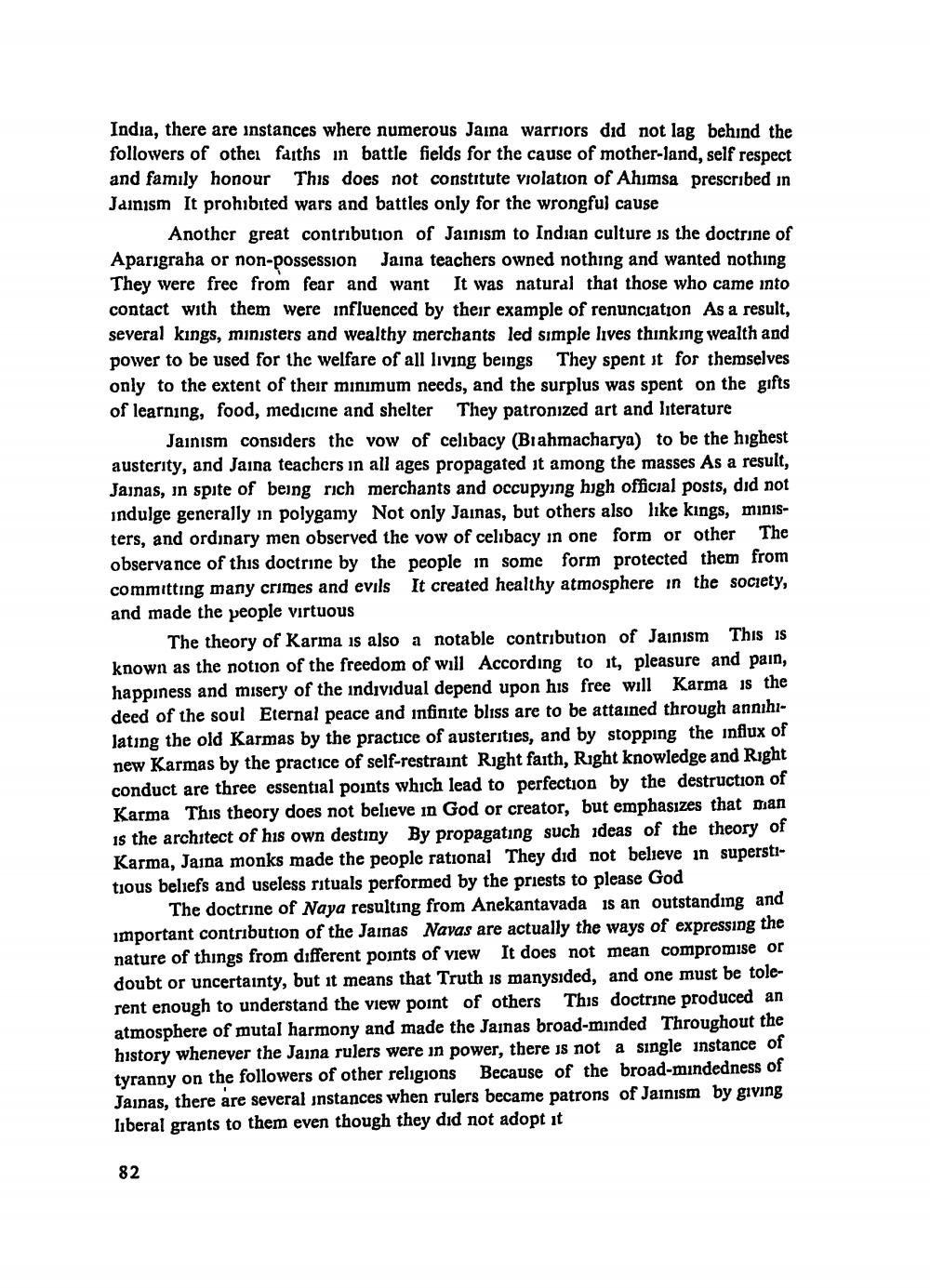________________
India, there are instances where numerous Jaina warriors did not lag behind the followers of other faiths in battle fields for the cause of mother-land, self respect and family honour This does not constitute violation of Ahimsa prescribed in Jainism It prohibited wars and battles only for the wrongful cause
Another great contribution of Jainism to Indian culture is the doctrine of Aparigraha or non-possession Jaina teachers owned nothing and wanted nothing They were free from fear and want It was natural that those who came into contact with them were influenced by their example of renunciation As a result, several kings, ministers and wealthy merchants led simple lives thinking wealth and power to be used for the welfare of all living beings They spent it for themselves only to the extent of their minimum needs, and the surplus was spent on the gifts of learning, food, medicine and shelter They patronized art and literature
Jainism considers the vow of celibacy (Brahmacharya) to be the highest austerity, and Jaina teachers in all ages propagated it among the masses As a result, Jainas, in spite of being rich merchants and occupying high official posts, did not indulge generally in polygamy Not only Jainas, but others also like kings, ministers, and ordinary men observed the vow of celibacy in one form or other The observance of this doctrine by the people in some form protected them from committing many crimes and evils It created healthy atmosphere in the society, and made the people virtuous
The theory of Karma is also a notable contribution of Jainism This is known as the notion of the freedom of will According to it, pleasure and pain, happiness and misery of the individual depend upon his free will Karma is the deed of the soul Eternal peace and infinite bliss are to be attained through annihilating the old Karmas by the practice of austerities, and by stopping the influx of new Karmas by the practice of self-restraint Right faith, Right knowledge and Right conduct are three essential points which lead to perfection by the destruction of Karma This theory does not believe in God or creator, but emphasizes that man is the architect of his own destiny By propagating such ideas of the theory of Karma, Jaina monks made the people rational They did not believe in superstitious beliefs and useless rituals performed by the priests to please God
The doctrine of Naya resulting from Anekantavada is an outstandmg and important contribution of the Jainas Navas are actually the ways of expressing the nature of things from different points of view It does not mean compromise or doubt or uncertainty, but it means that Truth is manysided, and one must be tolerent enough to understand the view point of others This doctrine produced an atmosphere of mutal harmony and made the Jainas broad-minded Throughout the history whenever the Jaina rulers were in power, there is not a single instance of tyranny on the followers of other religions Because of the broad-mindedness of Jainas, there are several instances when rulers became patrons of Jainism by giving liberal grants to them even though they did not adopt it
82




